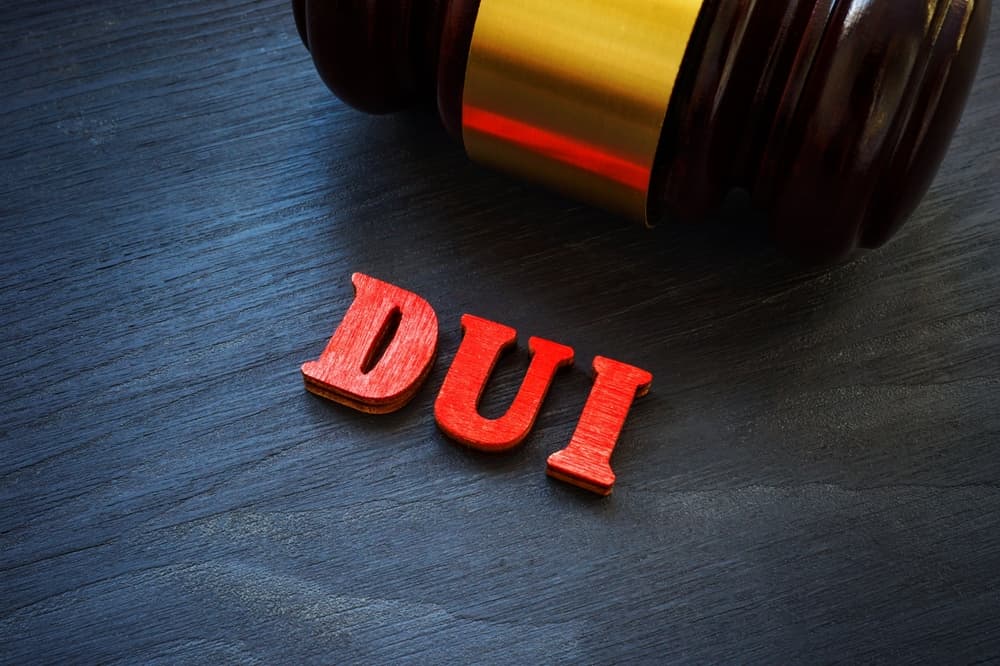
Every year, over a million drivers in the United States are arrested for driving under the influence. According to the National Highway Traffic Safety Administration (NHTSA), DUI arrests account for about one-third of all traffic-related arrests.
While driving under the influence is one of the most common criminal charges, that doesn’t mean the consequences are minor. A single DUI arrest can set off a chain reaction of penalties that reach far beyond the courtroom. You may be facing license suspension, steep fines, mandatory programs, or even jail time.
If you have been arrested on a DUI charge, working with a good DUI defense lawyer may be one of the best investments you ever make. A DUI conviction can follow you into job applications, housing decisions, professional licensing, and even child custody disputes. It leaves a mark that’s hard to erase.
This isn’t the time for guesswork or generic legal help. You need someone who understands what’s at stake and has the skill to help protect not just your record — but your future.
Key Takeaways for How to Find a Good DUI Attorney
- Not every criminal defense attorney is equipped to handle DUI cases, which involve both legal strategy and science-based evidence.
- Good DUI lawyers often challenge the traffic stop, breathalyzer results, or police conduct to reduce or dismiss charges.
- Finding a good DUI lawyer near you is essential. Familiarity with your local court system and prosecutors can make a major difference in how your case unfolds.
- Client reviews, past results, and bar discipline records offer real-world insights into how a lawyer treats their clients and handles cases.
- An experienced DUI defense attorney can protect your rights, guide you through court and DMV hearings, and work toward the best possible outcome in your case.
What Makes DUI Cases Different From Other Criminal Charges?

Most criminal cases depend on testimony and physical evidence, but most DUI cases add layers of scientific evidence, including field sobriety tests, breath or blood tests, and toxicology reports. These tests and processes are often flawed or mishandled. A lawyer trained in identifying those problems can use them to your advantage.
A DUI arrest also triggers two different procedures. There’s a criminal court case and a separate administrative hearing that affects your driver’s license. A good DUI lawyer can represent you in both and coordinate defense strategies that help you on both fronts.
Red Flags To Watch Out For When Hiring a DUI Lawyer
Not all lawyers who accept DUI cases have the experience or commitment needed to defend them well. Some take these cases just to fill their caseload, without fully understanding how high the stakes are for their clients.
Watch for these warning signs during your search:
- They make promises about outcomes. No ethical lawyer will guarantee that your charges will be dropped or reduced.
- They don’t ask detailed questions about your arrest. A solid defense begins with digging into the traffic stop, testing, and procedures.
- They push you to plead guilty without explanation. While a plea deal might be right in some cases, it should never be the first or only option discussed.
- They seem unfamiliar with DUI laws or testing procedures. A good DUI defense involves challenging breathalyzer accuracy, improper police conduct, or mishandled evidence.
- They won’t represent you at a DMV hearing. A separate administrative process can suspend your license even before trial — ignoring this is a red flag.
You’re trusting someone with your driving record, your job, and in some cases, your freedom. If a lawyer treats your case casually, it’s best to consider other options.
Credentials That a Good DUI Defense Lawyer Possesses
Legal marketing is full of buzzwords. What actually matters are hard credentials and courtroom experience. Here’s what to look for when choosing a DUI attorney to handle your case:
Trial experience in DUI cases
Has the attorney actually defended DUI cases in court? Many will take plea deals for clients without ever filing a motion or challenging the evidence. A lawyer with a history of fighting and winning DUI cases is more likely to get better results.
Knowledge of chemical testing and sobriety procedures
Your lawyer should understand how field sobriety tests are administered, how breathalyzers work, and what it means to challenge the chain of custody in a blood test. Without this, key parts of your defense may be missed entirely.
Familiarity with local courts and prosecutors
A DUI lawyer who practices in your area regularly will know how local judges handle these cases and which prosecutors are open to negotiation. In Nebraska and Iowa, where state-specific procedures apply, this local insight can shape your defense strategy.
DUI Penalties and Consequences You Might Face
A DUI conviction can affect nearly every part of your life. Legal penalties are just the beginning. The real impact often continues long after the case ends. The goal of a good DUI attorney is to challenge your DUI charges or minimize the effects of a DUI offense on your life.
Each state defines its own sentencing structure for DUI offenses. Legal penalties in Nebraska, for example, require a mandatory license revocation and up to 60 days in jail for a first-time DUI under Rev. Stat. § 60-6,197.03. Iowa’s laws classify first-time operating while intoxicated (OWI) as a serious misdemeanor, with possible jail time and fines under Iowa Code § 321J.2.

- Required ignition interlock devices
- Supervised probation and substance abuse treatment
- Mandatory community service
- A permanent criminal record
- Significant increases in auto insurance rates
A DUI conviction can disrupt employment, family responsibilities, and even immigration status. It may limit your ability to travel, hold a professional license, or pass a background check.
These consequences are often underestimated in the early days after an arrest. But they highlight why early legal intervention is so critical. A knowledgeable DUI lawyer can defend DUIs by negotiating for lesser charges, challenging the legality of the arrest, or fighting for reduced penalties that avoid long-term fallout.
How Local DUI Laws Shape Your Defense
DUI laws vary by state, and the consequences of a conviction depend heavily on where you were arrested. For example:
- Nebraska law treats a first-offense DUI as a misdemeanor, punishable by up to 60 days in jail, fines, and license suspension (Neb. Rev. Stat. § 60-6,197.03).
- Iowa law also categorizes a first-offense OWI (Operating While Intoxicated) as a serious misdemeanor, but with a different sentencing structure (Iowa Code § 321J.2).
Every state also has its own statute of limitations. While most DUI cases are filed shortly after arrest, knowing the time limits matters if you were arrested but not charged right away.
Another critical difference: Nebraska and Iowa use different approaches to license suspension and ignition interlock devices. An experienced DUI lawyer will help you understand how these systems work and push back when enforcement steps outside legal bounds.
How to Vet a DUI Lawyer Before You Hire Them
Start by focusing your search on criminal defense attorneys with a history of handling DUI defense cases. Then, take these steps:
- Read reviews from real clients. Sites like AVVO, Google, and Lawyers.com offer a clearer picture of how the attorney handles cases and treats clients.
- Check for disciplinary actions. State bar association websites list lawyers who have been disciplined. This should be a non-negotiable part of your research.
- Ask about case results. While no lawyer can guarantee an outcome, they should be able to talk about past DUI cases they’ve handled and what challenges they’ve overcome.
- Schedule a consultation. Most DUI defense attorneys offer free or low-cost consultations. Use this time to ask about their process, fees, and communication style.
- Look for continuing education and training. Membership in DUI defense associations or attendance at advanced programs can show a real commitment to this area of law.
During the consultation, ask questions such as:
- How many DUI cases have you handled recently?
- Do you regularly appear in the court where my case is pending?
- Will you handle my case personally?
- What are the likely outcomes for a case like mine?
If the attorney listens closely, gives honest answers, and explains things clearly, you’re likely in good hands.
How DUI Lawyers Build Strong Defenses
Every good DUI defense begins with an investigation. Your lawyer should thoroughly examine every step of the arrest process, looking for legal or procedural missteps that could help your case.
Challenging the traffic stop
Police must have a legal reason — called reasonable suspicion — to pull you over. If the officer stopped you without cause, any evidence collected afterward could be suppressed.
Examining field sobriety tests
These tests are subjective and can be influenced by nervousness, health conditions, or even uneven pavement. A skilled lawyer may argue that poor test performance doesn’t prove impairment.
Investigating breath and blood testing
Breathalyzer machines must be properly maintained, calibrated, and administered. Blood tests require strict chain-of-custody procedures. Any failure in these steps may make the results unreliable.
Reviewing body cam footage and police reports
Video and written records often contain inconsistencies. A lawyer can use these discrepancies to question the officer’s credibility or highlight alternative explanations for your behavior.
Timing Can Shape the Outcome of Your Case

- In many states, you only have a limited time to request a DMV hearing to fight the suspension of your driver’s license. In Nebraska, you must request a hearing within 10 days of receiving a revocation notice.
- Evidence, such as surveillance video or witness testimony, may be lost if not secured early.
- The prosecution begins building its case immediately. The longer you wait, the harder it may be for your attorney to push back effectively.
By hiring a DUI lawyer quickly, you give yourself the best chance to preserve key evidence, prepare your defense, and protect your rights on all fronts.
FAQs About Choosing a Good DUI Defense Lawyer
How soon should I contact a lawyer after a DUI arrest?
It’s best to contact a lawyer immediately. In some states, you only have a few days to request a DMV hearing or challenge a license suspension. Early legal help can protect your driving privileges and improve your chances in court.
What is the difference between DUI and OWI?
The terms are used differently depending on the state. Nebraska uses DUI (Driving Under the Influence), while Iowa refers to OWI (Operating While Intoxicated). Both refer to operating a vehicle while impaired by alcohol or drugs, but the legal terminology and penalties can vary.
What is the statute of limitations for DUI charges?
In most states, DUI charges must be filed within one to three years. In Nebraska, the statute of limitations for most DUI cases is 18 months, while Iowa generally allows three years. However, if charges have already been filed, the statute of limitations no longer applies.
What if I refused a breath or blood test?
Refusing a chemical test can trigger automatic license suspension in many states due to “implied consent” laws. However, your refusal may also limit the prosecution’s evidence. A DUI lawyer can advise you on how a refusal affects your specific case.
How much does a DUI lawyer cost?
Legal fees can range widely depending on experience, location, and complexity. Some attorneys charge flat rates for DUI defense, while others bill by the hour. Always ask for a written fee agreement and clarification on what’s included.
Facing the Future With Confidence After a DUI Charge

After a DUI arrest, it can feel like the outcome is already decided, but that’s rarely the case. The choices you make early on, especially who you hire to defend you, can have a real impact on how your case is resolved.
At Liberty Law Group, we defend people facing DUI and OWI charges across Nebraska and Iowa, including Omaha, Lincoln, and Council Bluffs. Our attorneys bring detailed legal knowledge, practical courtroom experience, and a personal commitment to every case. Whether it’s your first offense or you’ve been through this before, we fight hard for your rights, your record, and your recovery.
Call us at (402) 865-0501 in Omaha or (531) 249-5534 in Lincoln, or contact us online to schedule a confidential case review today.




